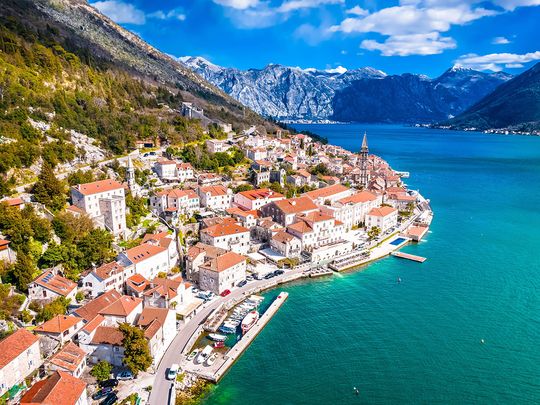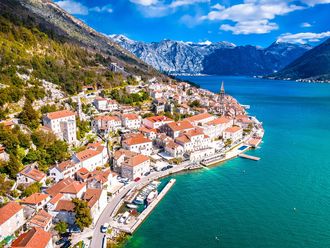Cookies on citizensinformation.ie
We use cookies to collect information about how you use citizensinformation.ie. This helps us to improve your experience. You can find out more about the cookies we use in our Cookie notice . You can also read our Privacy policy . You can accept all cookies or you can chose which cookies to accept or reject. You can change your cookie preferences at any time by using the My cookie preferences link at the bottom of each page.

Cookie preferences
Cookies used by google analytics.
We use Google Analytics to measure how you use the website so we can improve it. We have configured Google Analytics to anonymise your IP address so that you are not personally identified. We gather information on:
- How you got to the site
- The pages you visit on citizensinformation.ie, and how long you spend on each page
- What you click while you are visiting the site

Visa requirements for entering Ireland
Introduction, do i need a visa, types of visa, visa waivers for uk visa holders, school student visa waiver, do i need preclearance, how to apply for a visa orpreclearance, further information and contacts.
If you are travelling to Ireland and you are not a citizen of the UK, Switzerland, or a country in the European Economic Area (the EU plus Norway, Iceland and Lichtenstein), you may need to apply for a visa.
An Irish visa is a certificate placed on your passport or travel document that allows you to travel to Ireland. You still have to present your passport and documents to immigration control when you arrive at the airport or port, and an immigration officer may still refuse you entry to Ireland .
If you are travelling with children , you have to apply for a visa for your children too.
You may also have to register with immigration authorities .
Ukrainian citizens
From 25 February 2022, citizens of Ukraine do not need a visa to travel to Ireland . Read information for people who have arrived in Ireland from Ukraine .
You do not need a visa to land in Ireland if you:
- Are a citizen of the EU or the EEA (the EU plus Iceland, Norway and Lichtenstein) or Switzerland
- Have a residence card issued by an EEA country or Switzerland because you are the family member of an EEA or Swiss citizen living in a country outside of the EEA/Swiss family member’s home country (for example, you live in Germany with your French spouse)
- Have a UK short-stay visa and qualify for the short-stay visa waiver or the British-Irish Visa Scheme (see ‘Visa waivers for UK visa holders’ below)
- Are a school student who lives in an EU/EEA country and you are travelling as part of a school trip (see ‘School Student Visa Waiver’ below)
- Are a citizen of a country listed in the table below.
Note Visa free travel also applies to the following types of British nationality:
- British national (overseas)
- British overseas territories citizen (previously called ‘British dependent territories citizenship)
- British overseas citizen
Visa free travel does not apply to people who have a British passport as a ‘British protected person'.
If you are moving to Ireland to live with your Irish de facto partner, a spouse or partner who holds a Critical Skills Employment Permit, or your UK spouse or partner, you have to apply for preclearance even if you are from one of the countries listed above (this does not apply to citizens of Switzerland or the UK). See ‘Do I need preclearance’ below.
If you have a short stay visa for the UK and are an Indian or Chinese citizen, you can travel to Ireland without a visa. See ‘Visa waivers for UK visa holders’ below.
Travelling with a refugee travel document
If you have a refugee travel document issued by a country outside Ireland, you must apply for a visa to enter Ireland. Visa free travel for travel document holders is suspended until further notice.
Family members of EEA/Swiss citizens
If you are coming to Ireland to join or accompany your EEA family member , you must apply for a visa if you are from a country that is not in the list above. If you are already living in another EEA country or Switzerland because you are the family member of an EEA or Swiss citizen who is exercising their free movement rights, you do not need a visa to travel to Ireland.
If you plan to stay in Ireland for more than 3 months you must apply for residence after your arrival.
The type of visa you need depends on the purpose and length of your stay in Ireland.
Short stay visas
If you want to come to Ireland for less than 3 months, you should apply for a short stay ‘C’ visa . You should apply for this type of visa if you want to come to Ireland as a tourist or to visit someone, for a business meeting, or to attend a short course.
You cannot stay for longer than 3 months on a ‘C’ visa. You must leave Ireland and apply for another visa if you want to return.
Long stay visas
If you want to come to Ireland for more than 3 months, for example to study, for work or to settle permanently in Ireland with family members who live in Ireland, then you can apply for a long stay ‘D’ visa .
If you are granted a long stay ‘D’ visa and wish to remain in the State for longer than 3 months you must register and get an Irish Residence Permit (IRP).
You can read more information about different types of visa available on the ISD website .
Re-entry multiple entry visas
The first visa issued to you is valid for a single entry to the State. If you leave Ireland, you must apply for another visa to travel to Ireland again.
If you have had single entry visas in the past and you have obeyed the conditions of those visas, you can apply for a multiple entry visa. You can also apply if you need to come to Ireland frequently for business. A multiple entry visa allows you to travel to Ireland on more than one occasion during the period that the visa is valid.
Re-entry visas for people who live in Ireland
If you have a valid Irish Residence Permit (IRP), you no longer need a re-entry visa to re-enter Ireland when traveling abroad. Children under 16 do not get an IRP. They can return to Ireland without a re-entry visa if they are travelling with parents or guardians. The parents or guardians must have an IRP.
Transit visas
If you are travelling through Ireland on your way to another country, you may need a transit visa when arriving in Ireland on their way to another country. A transit visa does not permit you to leave the port or airport. If you are a citizen of one of the following countries, you will need a valid Irish transit visa when landing in the State:
The Short Stay Visa Waiver Programme allows nationals of a number of Eastern European, Middle Eastern and Asian countries who have a short-term UK visa, to come to Ireland without the need for a separate Irish visa. The countries included in the scheme are:
- Bosnia and Herzegovina
- North Macedonia
- Philippines
- Saudi Arabia
Citizens of India and China , who have a short stay UK visa can travel to Ireland under the British Irish Visa Scheme (BIVS) without a separate Irish visa. You can also use your Irish visa to travel to the UK. Your visa must be endorsed with ‘BIVS’.
School students who are citizens of a country that would normally need a visa to enter Ireland can apply for a waiver if they live in an EU or EEA country and are travelling as part of a school trip.
The principal of the school must complete an application form and present this form to immigration upon arrival.
If you do not need a visa to come to Ireland, you may still have to apply for preclearance. Preclearance is permission to enter Ireland to apply to reside for certain reasons. You have to apply for preclearance if you want to come to Ireland:
- To volunteer
- As a minister of religion
- As the de facto partner of a Critical Skills Employment Permit or Hosting Agreement holder
- As the de facto partner of an Irish citizen
- As the family member of a UK citizen
A de facto partnership is when you are in a relationship with someone that is like a marriage.
You can apply for pre-clearance online. If you are approved, and you intend to stay in Ireland for more than 3 months, you have to register for an Irish Residence Permit after you arrive in Ireland.
You must apply for an entry visa or preclearance online .
There is information on how to complete an online application in English (pdf) as well as in Arabic (pdf) , Chinese (pdf) , Russian (pdf) , Hindi (pdf) , French (pdf) , Turkish (pdf) and Urdu (pdf) .
You should apply at least 8 weeks before you plan to come to Ireland. Details of the photographic requirements and current processing times are on the ISD website.
Biometric data : All visa applicants residing in Nigeria must provide biometric data . Applicants residing in Pakistan, India and China must provide fingerprints.
Appeals: If you are refused a visa you can appeal the decision by writing to the Irish Immigration Service Visa office .
The standard non-refundable visa application processing fees are:
Entry and re-entry visas
A single journey visa costs €60 and will be valid for one entry to the State up to a maximum of 90 days from the date of issue.
A multi journey visa costs €100 and will be valid for multiple entries to the State up to a maximum of 5 years from the date of issue.
A transit visa costs €25.
There may also be communications charges in some cases. Information about these charges, and on the fee in your local currency, is available from your local Irish embassy or consulate.
Who does not pay the fee?
Some applicants are not required to pay a fee . This includes visa-required spouses and certain family members of EEA citizens (including Irish nationals) provided that proof of the relationship is provided with the application. In addition, applicants from some countries are not required to pay a fee. As this can change from time to time, you should check with your local Irish embassy or consulate, or with the Visa Office.
Information about visas is available from your nearest Irish embassy or consulate .
Visa Office
Immigration Service Delivery Department of Justice 13-14 Burgh Quay Dublin 2 D02 XK70 Ireland
Re-entry Visa Processing Office
Immigration Service Delivery 13/14 Burgh Quay Dublin 2 Ireland
Related documents
- Visas for tourists visiting Ireland Information about coming to Ireland for a short stay (less than 90 days). 2034.2621
- Visas for people visiting Ireland on business Certain people who wish to travel to Ireland for business purposes require visas. Find out more. 1893.2753
- Student visas to study in Ireland People from certain countries who wish to study in Ireland require visas. Find out more. 1832.1687
If you have a question about this topic you can contact the Citizens Information Phone Service on 0818 07 4000 (Monday to Friday, 9am to 8pm).
You can also contact your local Citizens Information Centre .
Manage cookie preferences
Security Alert May 17, 2024
Worldwide caution, update may 10, 2024, information for u.s. citizens in the middle east.
- Travel Advisories |
- Contact Us |
- MyTravelGov |
Find U.S. Embassies & Consulates
Travel.state.gov, congressional liaison, special issuance agency, u.s. passports, international travel, intercountry adoption, international parental child abduction, records and authentications, popular links, travel advisories, mytravelgov, stay connected, legal resources, legal information, info for u.s. law enforcement, replace or certify documents.
Before You Go
Learn About Your Destination
While Abroad
Emergencies
Share this page:
Travel Advisory July 26, 2023
Ireland - level 1: exercise normal precautions.
Reissued with obsolete COVID-19 page links removed.
Exercise normal precautions in Ireland.
Read the country information page for additional information on travel to Ireland.
If you decide to travel to Ireland:
- Enroll in the Smart Traveler Enrollment Program ( STEP ) to receive Alerts and make it easier to locate you in an emergency.
- Follow the Department of State on Facebook and Twitter .
- Review the Country Security Report for Ireland.
- Visit the CDC page for the latest Travel Health Information related to your travel.
- Prepare a contingency plan for emergency situations. Review the Traveler’s Checklist .
Embassy Messages
View Alerts and Messages Archive
Quick Facts
Must be valid for the duration of your stay in Ireland
Must have at least one page
No visa required. U.S. citizens can enter visa-free for tourism or business stays of up to 90 days.
10,000 Euros or equivalent
Embassies and Consulates
U.S. Embassy Dublin 42 Elgin Rd Ballsbridge Dublin 4 Ireland Telephone: +(353) (1) 668-8777 Emergency after-hours telephone: +(353) (1) 668-8777 Email: [email protected]
Destination Description
See the Department of State’s Fact Sheet on Ireland for information on U.S.-Ireland relations.
Entry, Exit and Visa Requirements
Visit the Embassy of Ireland’ s website for the most current visa information.
- You must have a valid passport to enter Ireland. U.S. citizens can enter visa-free for tourism or business stays of up to 90 days.
- There is no minimum passport validity requirement for U.S. citizens entering Ireland. We recommend you have a passport that is valid for the duration of your stay, evidence of sufficient funds to support your stay in Ireland, and a return airline ticket.
- An increased number of U.S. citizens have been refused entry to Ireland or granted a limited stay because they failed to sufficiently demonstrate their travel intent to Irish immigration officials at the port of entry . You may be asked to provide evidence of sufficient funds to support your stay in Ireland regardless of your purpose of travel. For any travel other than tourism, please ensure you obtain the appropriate documentation prior to travel. You can find more information at the Irish Naturalization and Immigration Service website or by contacting your nearest Irish Embassy or Consulate in the United States .
We cannot intervene on your behalf when applying for a visa or residency permit, nor can we assist if you are denied entry into Ireland.
Traveling Through Europe : If you are planning to visit or travel through European countries, you should be familiar with the requirements of the Schengen Agreement.
- Ireland is not a full member of the Schengen Area, which means that if you travel to Ireland from the Schengen Area, you are required to show your passport.
- Your passport should be valid for at least three months beyond the period of stay if you plan on transiting a Schengen country.
- You will need sufficient proof of funds and a return plane ticket .
- For additional information about visas for the Schengen area, see the Schengen Visa page.
The U.S. Department of State is unaware of any HIV/AIDS entry restrictions for visitors to Ireland or for foreign residents of Ireland.
Find information on dual nationality , prevention of international child abduction , and customs regulations on our websites.
Safety and Security
Terrorism : Terrorist groups and those inspired by such organizations are intent on attacking U.S. citizens abroad. Terrorists are increasingly using less sophisticated methods of attack – including knives, firearms, and vehicles – to more effectively target crowds. Frequently, their aim is unprotected or vulnerable targets, such as:
- High-profile public events (sporting contests, political rallies, demonstrations, holiday events, celebratory gatherings, etc.)
- Hotels, clubs, and restaurants frequented by tourists
- Places of worship
- Shopping malls and markets
- Public transportation systems (including subways, buses, trains, and scheduled commercial flights)
Crime : Although Ireland has a low rate of violent crime, you should always follow common sense personal security practices and maintain awareness of your surroundings when traveling.
- Rates of theft and petty crime have risen in recent years, and thieves often target tourists. In rare cases, these crimes involve physical assault or violence, more commonly in Dublin city center and in popular tourist areas.
- Rental cars are frequently targeted. They are easily identifiable by the rental company stickers on the rear window of the vehicle. If possible, remove these stickers and always lock your car when leaving it unattended. Do not leave valuables unattended in vehicles. When visiting city center areas, park your car in a secure car park and retain the parking ticket on your person.
- Keep car doors locked while driving. Don’t leave luggage or valuables visible inside a parked car and don’t leave luggage on a roof rack. When picking up and dropping off your rental car, do not leave the keys in the ignition while loading or unloading luggage.
- When using ATMs, protect your PIN at all times and look closely at ATMs for evidence of tampering before use. Criminals may use small electronic devices attached to the outside of ATMs called “skimmers” to steal the ATM or credit card data.
- In busy areas, thieves use distraction techniques at ATMs, such as waiting until the PIN has been entered and then pointing to money on the ground or asking for loose change. While the ATM user is distracted, another person will quickly withdraw cash and leave. If you are distracted in any way, cancel the transaction immediately.
- When using credit cards to pay at restaurants, a portable card reader should be brought to your table. Restaurant staff should not take your card elsewhere to process a charge.
International Financial Scams : See the Department of State and FBI pages for information on scams.
Victims of Crime:
- Report crimes to the local police at 999 or 112 and contact the U.S. Embassy at +(353) (1) 668-8777.
- U.S. citizen victims of sexual assault are encouraged to contact the U.S. Embassy for assistance.
- Remember that local authorities are responsible for investigating and prosecuting crimes.
See our webpage on help for U.S. victims of crime overseas .
- Help you find appropriate medical care
- Assist you in reporting a crime to the police
- Contact relatives or friends with your written consent
- Provide general information regarding the victim’s role during the local investigation and following its conclusion
- Provide a list of local attorneys .
- Provide our information on victim’s compensation programs in the United States
- Provide information on victims compensation programs in Ireland:
- The Irish Tourist Assistance Service (ITAS) is a free nationwide service offering support and assistance to tourists who are victimized while visiting Ireland. If you are a tourist victim of crime, report the incident to the nearest Garda (Irish police) station, and they will help you contact ITAS.
- Provide an emergency loan for repatriation to the United States and/or limited medical support in cases of destitution
- Help you find accommodation and arrange flights home
- Replace a stolen or lost passport
Domestic Violence : U.S. citizen victims of domestic violence are encouraged to contact the Embassy for assistance.
Tourism : The tourism industry is generally regulated, and rules are regularly enforced. Hazardous areas/activities are identified with appropriate signage and professional staff is typically on hand in support of organized activities. In the event of an injury, appropriate medical treatment is widely available throughout the country. Outside of a major metropolitan center, it may take more time for first responders and medical professionals to stabilize a patient and provide life-saving assistance. U.S. citizens are encouraged to purchase medical evacuation insurance. See our webpage for more information on insurance providers for overseas coverage .
Local Laws & Special Circumstances
Criminal Penalties : You are subject to local laws. If you violate local laws, even unknowingly, you may be expelled, arrested, or imprisoned. Individuals practicing a profession that requires additional permits or licensing should seek information from the competent local authorities prior to practicing.
Furthermore, some laws are also prosecutable in the United States, regardless of local law. For examples, see our webpage on crimes against minors abroad and the Department of Justice website .
Arrest Notification : If you are arrested or detained, ask police or prison officials to notify the U.S. Embassy immediately. See our webpage for further information.
Currency in Ireland: The currency used in Ireland is the Euro. U.S. dollars are not legal tender in Ireland and are not an accepted form of payment. There are limited locations to exchange U.S. dollars when in Ireland, should you travel with cash. Payment by credit card and Apple pay is widely accepted throughout Ireland. However, it is important to note that not all U.S credit cards are universally accepted. Most Irish banks will not accept U.S. $100 bills. Many Irish financial institutions no longer accept or cash traveler’s checks. ATMs are widely available, but some, particularly in rural areas, may not accept debit cards from U.S. banks.
Faith-Based Travelers : See the following webpages for details:
- Faith-Based Travel Information
- International Religious Freedom Report – see country reports
- Human Rights Report – see country reports
- Hajj Fact Sheet for Travelers
- Best Practices for Volunteering Abroad
LGBTQIA+ Travelers : There are no legal restrictions on same-sex sexual relations or the organization of LGBTQIA+ events in Ireland.
See our LGBTQIA+ Travel Information page and section 6 of the Department of State’s Human Rights report for further details.
Travelers with Disabilities: The law in Ireland prohibits discrimination against persons with disabilities, and the law is enforced. Social acceptance of persons with disabilities in public is as prevalent as in the United States. However, individuals with disabilities may find accessibility and accommodation different from what is offered in the United States.
- Government Buildings : Irish law requires access to government buildings for persons with disabilities, and this requirement is enforced. Under Irish law, public service providers should ensure the service is accessible to those with mobility, sensory, and/or cognitive impairments.
- Parking : On-street parking, public building parking lots, and internal parking lots always have a certain number of disabled spaces available. A permit is required to use these spaces, and information on applying for the permit can be found on the Disabled Drivers Association of Ireland website . Local authorities and commercial premises, such as shopping outlets, have no legal obligation to provide external disabled parking facilities for their customers.
- Buses and Trains : The majority of buses and trains in the main city areas of Ireland are now equipped for those with limited mobility, sight, or hearing disabilities, although some train stations and pathways may not be as easily accessible.
- Mainline and Suburban Trains : Portable ramps permit boarding from platforms to the carriages. These ramps are available at all terminal points and major junctions and stations that have staff on duty. They are also available on some trains. Travelers are advised to contact Irish Rail in advance to ensure such facilities are available. The website for Dublin Bus provides information on its travel assistance scheme. Regional and intercity bus services are provided by Bus Eireann
- Private Businesses : Accessibility in private businesses – such as hotels, bed and breakfasts, shops, and restaurants – varies widely. Travelers should inquire about accessibility issues with businesses before making reservations.
- Disability Allowance : People who live in Ireland and meet the medical conditions for a disability allowance may apply for free travel passes; there is also a blind/invalidity pension from the Irish Department of Social Protection for those who qualify.
Students : See our Students Abroad page and FBI travel tips .
Women Travelers : See our travel tips for Women Travelers .
As of March 6, 2022, the Government of Ireland removed all COVID-19 related travel restrictions to enter Ireland. Non-Irish citizens no longer need to complete a passenger locator form or provide proof of vaccination, or a COVID-19 test.
Patients who do not receive benefits from Ireland’s Department of Social Protection are expected to pay all costs up-front at the time of treatment and apply for reimbursement from their insurance provider later.
- Modern medical facilities and highly skilled medical practitioners are available in Ireland.
- Expect long waits for access to medical specialists and admissions to hospitals for non-life-threatening medical conditions. It is not unusual for emergency room services to be very busy or for post-treatment admissions to include a long wait (sometimes overnight) on a gurney in a hallway.
- We advise you carry your medical history, along with a detailed list of any medication you currently take (including dosage and brand name) in your wallet or purse and luggage.
- Most types of over-the-counter medications are available, but many U.S. brands are not. Some medications available over the counter in the United States may require a prescription in Ireland.
- Irish pharmacists may not be able to dispense medication prescribed by U.S. physicians and may direct you to obtain a prescription from an Irish doctor.
- A list of Irish general practitioners in each area of Ireland may be obtained from the website of the Irish College of General Practitioners .
- Ambulance services are widely available.
For emergency services in Ireland dial 112 or 999.
The Department of State does not pay medical bills . Be aware that U.S. Medicare/Medicaid does not apply overseas. Most hospitals and doctors overseas do not accept U.S. health insurance.
Medical Insurance: Make sure your health insurance plan provides coverage overseas. Most care providers overseas only accept cash payments. See our webpage for more information on insurance providers for overseas coverage. Visit the U.S. Centers for Disease Control and Prevention website for more information on the type of insurance you should consider before you travel overseas.
We strongly recommend supplemental insurance to cover medical evacuation.
Always carry your prescription medication in original packaging, along with your doctor’s prescription. Check with the Government of Ireland to ensure the medication is legal in Ireland.
Vaccinations : Be up-to-date on all vaccinations recommended by the U.S. Centers for Disease Control and Prevention.
Pharmaceuticals :
- Visitors to Ireland may bring up to 3 months’ supply of prescription medicines with them for their own personal use. We recommend that travelers bring the prescription medicines in their original packaging, with their name clearly displayed. This should be accompanied by their prescription or a copy of it, and/or a letter from their doctor and/or dispensing pharmacist outlining their condition and stating that the medicines are for their own personal use. This information should be inside the package in which the medication is being transported, as a means of proving the legitimacy of consignment for importation to Ireland. It should be noted that the Irish Customs Authority has the final say in all such matters.
- Schengen residents are required to have an Article 75 Schengen Certificate for prescribed narcotics and/or psychotropic substances on entry into Ireland if travelling from a Schengen area country.
- U.S. Customs and Border Protection and the Food and Drug Administration are responsible for rules governing the transport of medication back to the United States. Medication purchased abroad must meet their requirements to be legally brought back into the United States. Medication should be for personal use and must be approved for usage in the United States. Please visit the U.S. Customs and Border Protection and the Food and Drug Administration websites for more information.
Further health information:
- World Health Organization
- U.S. Centers for Disease Control and Prevention (CDC)
Water Quality
Tap water quality is potable and contains fluoride
Air Quality
Air quality is good. Visit AirNow Department of State for information on air quality at U.S. Embassies and Consulates
General Health
Colds and other upper respiratory infections are common, but no more so than in comparable climates of the U.S. However, due to the damp climate, common cold symptoms may last longer than expected and mold can be an issue in buildings.
The U.S. Embassy maintains a list of doctors and hospitals. We do not endorse or recommend any specific medical provider or clinic.
Travel and Transportation
Road Conditions and Safety:
- Cars drive on the left side of the road in Ireland . If you do not have experience driving on the left, you should be especially cautious as tourists driving on the incorrect side of the road are the cause of serious accidents each year.
- Road conditions are generally good, but once you exit the main highways, roads are likely to be narrow, uneven, and winding . Roads are more dangerous during the summer and on holiday weekends. Drivers should be attentive to cyclists and pedestrians, particularly in urban areas.
- Most intersections in Ireland use circular “roundabouts” instead of traffic lights, and it is important that drivers pay close attention to signs and yield the right of way to those already in the roundabout.
- Most rental cars in Ireland have manual transmissions ; it can be difficult to find automatic transmission rental cars.
Traffic Laws : Police periodically set up roadblocks to check for drunk drivers. Penalties for driving under the influence can be severe .
- At stoplights, turning on a red light is illegal ; you must wait for either a full green (any direction turn permitted) or directional green light (which could be straight, left, or right) before proceeding with caution.
- You may use your existing U.S. driver’s license in Ireland for a temporary stay, up to one year . Some insurance and car rental companies may request an International Driving Permit in addition to your existing driver’s license. To apply for an International Driving Permit, please contact the American Automobile Association . You are required to apply for an Irish driver’s license if you become a resident of Ireland.
- Travelers planning to drive to Northern Ireland are subject to UK traffic laws while in Northern Ireland . Traffic signs may be different than in the Republic of Ireland. Consult the United Kingdom Country Information page for more information on traffic laws in Northern Ireland.
Public Transportation :
- Intercity bus and train services are generally good. Most large towns and cities are connected by rail or bus. Train and bus services are more limited in rural areas between small towns.
- City bus services are generally adequate, although many buses are crowded, frequently run late, and lines do not necessarily link easily. Pay close attention to bus stop locations in both directions, as the drop-off and pick-up locations could be several blocks away from each other.
- You can review available train, tram, and bus services through the National Transport Authority’s website www.transportforireland.ie .
- Taxis are widely available in Dublin city center. Taxi rates vary by time of day and location. Ask your hotel for the number of a call-dispatched taxi service if you plan to be out during less busy times. Outside of Dublin, taxis are fewer, and it will likely be necessary to call a taxi company or use one of the several available rideshare apps operating in Ireland.
See our Road Safety page for more information. Visit the website of the Irish Tourism Board and the website for the National Roads Authority of Ireland , which is responsible for road safety.
Aviation Safety Oversight : The U.S. Federal Aviation Administration (FAA) has assessed the government of Ireland’s Civil Aviation Authority as being in compliance with International Civil Aviation Organization (ICAO) aviation safety standards for oversight of Ireland’s air carrier operations. Further information may be found on the FAA’s safety assessment page .
Maritime Travel: Mariners planning travel to Ireland should check for U.S. maritime advisories and alerts . Information may also be posted to the U.S. Coast Guard homeport website , and the NGA broadcast warnings website .
For additional travel information
- Enroll in the Smart Traveler Enrollment Program (STEP) to receive security messages and make it easier to locate you in an emergency.
- Call us in Washington, D.C. at 1-888-407-4747 (toll-free in the United States and Canada) or 1-202-501-4444 (from all other countries) from 8:00 a.m. to 8:00 p.m., Eastern Standard Time, Monday through Friday (except U.S. federal holidays).
- See the State Department’s travel website for the Worldwide Caution and Travel Advisories .
- Follow us on Twitter and Facebook .
- See traveling safely abroad for useful travel tips.
Review information about International Parental Child Abduction in Ireland . For additional IPCA-related information, please see the International Child Abduction Prevention and Return Act ( ICAPRA ) report.
Travel Advisory Levels
Assistance for u.s. citizens, ireland map, learn about your destination, enroll in step.

Subscribe to get up-to-date safety and security information and help us reach you in an emergency abroad.
Recommended Web Browsers: Microsoft Edge or Google Chrome.
Make two copies of all of your travel documents in case of emergency, and leave one with a trusted friend or relative.
Afghanistan
Antigua and Barbuda
Bonaire, Sint Eustatius, and Saba
Bosnia and Herzegovina
British Virgin Islands
Burkina Faso
Burma (Myanmar)
Cayman Islands
Central African Republic
Cote d Ivoire
Curaçao
Czech Republic
Democratic Republic of the Congo
Dominican Republic
El Salvador
Equatorial Guinea
Eswatini (Swaziland)
Falkland Islands
France (includes Monaco)
French Guiana
French Polynesia
French West Indies
Guadeloupe, Martinique, Saint Martin, and Saint Barthélemy (French West Indies)
Guinea-Bissau
Isle of Man
Israel, The West Bank and Gaza
Liechtenstein
Marshall Islands
Netherlands
New Caledonia
New Zealand
North Korea (Democratic People's Republic of Korea)
Papua New Guinea
Philippines
Republic of North Macedonia
Republic of the Congo
Saint Kitts and Nevis
Saint Lucia
Saint Vincent and the Grenadines
Sao Tome and Principe
Saudi Arabia
Sierra Leone
Sint Maarten
Solomon Islands
South Africa
South Korea
South Sudan
Switzerland
The Bahamas
Timor-Leste
Trinidad and Tobago
Turkmenistan
Turks and Caicos Islands
United Arab Emirates
United Kingdom
Vatican City (Holy See)

External Link
You are about to leave travel.state.gov for an external website that is not maintained by the U.S. Department of State.
Links to external websites are provided as a convenience and should not be construed as an endorsement by the U.S. Department of State of the views or products contained therein. If you wish to remain on travel.state.gov, click the "cancel" message.
You are about to visit:

Retirement Visas: Everything International Retirees Need to Know
Fact checked by Vikki Velasquez Reviewed by Katie Miller
What Is a Retirement Visa?
A retirement visa is a special type of visa issued by some nations that allows people with adequate financial resources to live in a specific foreign country for an extended period of time. Americans considering retiring outside of the United States will need to understand the income, health, and age requirements of their destination.
Key Takeaways
- Retirement visas are a type of visa that allows individuals to retire in a foreign country.
- The requirements for obtaining a retirement visa vary from country to country but typically involve maintaining a certain threshold of income or assets.
- Some countries also have age restrictions.
- A major benefit of retirement visas is that they are good for a much longer period than regular tourist visas.
- Some retirement visas last for life, while others need to be renewed periodically.
How Retirement Visas Work
A visa is a government permit allowing foreigners to enter a particular country and remain there for a specified period of time. A retirement visa is a type of visa that allows people to enter a country and, if they wish, spend their retirement years there.
Countries that offer retirement visas of one form or another include Costa Rica, Ecuador, Indonesia, Ireland, Mexico, Nicaragua, Panama, the Philippines, Portugal, Spain, and Thailand.
Retirement visas are generally good for at least 12 months, after which they can be renewed if the person still qualifies. In some countries, foreign retirees can also apply for permanent residency and obtain citizenship after they have lived there for a certain number of years.
Retirement Visa Requirements
Retirement visas go by different names in different countries, each of which maintains its own rules. In some countries, an individual must be over a certain age to qualify for a retirement visa. Others may have no specific age requirement but stipulate that the person be retired and have retirement or pension income.
All set a minimum income requirement, and some require that applicants deposit funds in a local bank. In many instances, retirement visa holders are not allowed to work in the host country unless they are able to obtain a separate work permit. The visa holder may also be required to purchase health insurance that is valid in that country. ( Medicare pays for healthcare outside the U.S. only in rare instances, for instance.)
Deciding to retire and travel isn’t something to take lightly. Consider every angle, such as your health and finances, before you take next steps.
How to Get a Retirement Visa
The process for obtaining a retirement visa also varies by country. In most cases, application forms can be found on government websites, along with instructions on how to apply, including where to apply in person. Depending on the country, you may be able to apply either within the U.S. or at an immigration office in the host country. If you’re applying within the U.S., this will typically entail appearing, with necessary documents, at either the country’s embassy in Washington, D.C., or one of its consulates in a major city.
Every country requires at least a few documents, although some are more demanding than others. In virtually every case, applicants are expected to provide:
- A valid passport or other travel document
- Proof of income and/or assets
In some countries, they may be required to provide additional documents, such as:
- A birth certificate
- A marriage certificate (if applicable)
- A medical report attesting to the applicant’s good health
- Proof of vaccinations
- Evidence of medical insurance valid in that country
- Bank statements reflecting deposits in local accounts (if required)
- A house or apartment lease or other proof of a place to stay
- A police certificate showing the lack of a criminal record
Again, depending on the country, it can take several days to several months (or even years) to receive a retirement visa. Most countries seem to require at least a few weeks.
Retirement Visa Options in Different Countries
To show how rules may differ, here are more detailed overviews of retirement visas available in several countries that American retirees might be considering: Australia, Indonesia, Ireland, and Thailand. Before selecting a retirement destination outside the U.S., Americans should be sure that they understand all the details of the visa requirements of the country of destination.
Australia has some of the strictest immigration laws in the world and no longer offers retirement visas. In 2018, the government created what it calls a “retirement visa pathway,” which can lead to permanent residency for a small number of people who qualify. There are several ways to set yourself on this pathway, although it can be a years-long journey.
If you already held an Australian retirement visa (subclass 410) or investment retirement visa (subclass 405) on May 8, 2018, you may be eligible to apply for permanent residency. (Both of those visas have been discontinued.)
If you don’t meet that requirement, you can apply for either a parent visa (subclass 103) or the more expensive contributory parent visa (subclass 143), which may qualify you for permanent residency after a certain period. In either instance, you must be the parent of an Australian citizen or permanent resident, or of a qualifying citizen of New Zealand, in addition to financial and other requirements.
The government cautions that processing times for parent (subclass 103) visas are significantly longer than those for contributory parent (subclass 143) visas, which also receive priority consideration. The government recently estimated waiting times of 15 years for contributory parent visas, and 40 years for regular parent visas.
The Republic of Indonesia offers a retired or senior citizen visa that is good for one year and may be extended for as many as five additional years. It doesn’t specify an age requirement but does require proof of sufficient financial resources in the form of a bank or pension fund statement. In addition, applicants must provide proof that they have health, life, and liability insurance .
After living in Indonesia for five consecutive years, visa holders can apply for permanent residency.
To retire to Ireland , U.S. citizens must apply for and be granted what’s known as Stamp 0. To be eligible, the applicant must either be “of independent means, fully financially self-sufficient” or sponsored by someone in Ireland who can provide their full support.
Stamp 0 applicants must also have private medical insurance. They “cannot receive any benefits or use publicly funded services, for example be treated at a public hospital.” In addition, they are not allowed to “work or engage in any business, trade or profession unless specified in a letter of permission from Immigration Service Delivery.”
Residents can apply for Irish citizenship once they have lived in the country for a certain period of time, typically five years but sometimes less.
The Kingdom of Thailand offers what is essentially its retirement visa—the Non-Immigrant “O-A” (long stay) visa—to eligible applicants ages 50 and older who don’t intend to work in the country. (Working is, in fact, prohibited on this visa.)
While the visa is only good for one year, visa holders can apply to extend it for additional one-year periods if they continue to meet the criteria, including income and asset requirements. In addition, visa holders must report to immigration officials every 90 days.
After living in Thailand for three years, visa holders can apply for permanent resident status.
However, it’s worth noting that Thailand limits how many people from any given country are eligible for residency each year, which is currently 100.
Retirement Visa Costs
Countries charge fees for retirement visas. This table shows some examples, as compiled by visadb.io, a website funded by grants from a number of countries:
Benefits and Limitations of a Retirement Visa
Retirement visas allow people to stay in a foreign country longer than typical tourist visas. This can be particularly useful to retirees, who may want to sample a country at various times of the year before deciding on moving there permanently. A retirement visa can also be a step toward qualifying for permanent resident status.
The visas do come with requirements, several of which are described above. In addition, retirees can be subject to taxes and may be required to contribute to the country’s healthcare and retirement systems.
Meanwhile, American citizens who retire to a foreign country are still required to file U.S. tax returns if their income exceeds a certain threshold, just as if they had remained in the States. Income from both U.S. and foreign sources is taxable, although foreign income up to a certain amount may be eligible for the foreign earned income exclusion .
The U.S. also has tax treaties with a number of countries, preventing citizens who are living abroad from being taxed twice on the same income.
Retirement visas differ from golden visas , which are a type of residency-by-investment program allowing people to gain residency by investing in the local economy.
Tips for a Successful Retirement Visa Application
To save time and avoid potential disappointment, anyone who wishes to obtain a retirement visa should follow a few basic steps:
- Read the visa requirements for the host country. These can be found online and in English, usually at the website of the country’s embassy or immigration office.
- Make a checklist of required documents and gather them.
- If your U.S. passport is close to expiring, renew it.
- If the country requires a medical examination, arrange a visit to your doctor.
- Fill out the retirement visa application, which is also typically available online.
- Make an appointment at the nearest embassy or consulate if the country requires an in-person application and allows you to apply from the U.S.
Note that some countries don’t allow applications from abroad but require that you show up in person at an immigration office in that country, typically after having obtained a tourist visa to get in. That makes it all the more important to obtain every necessary document before you go.
Who Can Apply for a Retirement Visa?
Anyone who meets a given country’s requirements can apply for a retirement visa if that country offers one. The requirements typically include a certain amount of income and assets. Some countries have specific age requirements, while many others don’t.
How Can I Apply for a Retirement Visa?
Most countries explain their retirement visa application on their websites, and many provide their applications online. When you’re ready to apply, however, you may have to do so in person.
Which Countries Allow a Retirement Visa?
At least 23 countries offer retirement visas of one kind or another, although they go by many different names. If you’re interested in a particular country, do an online search using its name plus “retirement visa.” A call to the country’s embassy is another option.
Which Countries Are the Easiest to Get a Retirement Visa for?
Generally speaking, countries in Latin America tend to have the lowest minimum income requirements, and they may also have the lowest costs of living . If your goal is to ultimately become a citizen of another country, note that some of them are known for their relatively easy citizenship requirements for retirees.
What If I Want to Work in Retirement, But Abroad?
A digital nomad visa is a document or program that gives someone the legal right to work remotely while residing away from their country of permanent residence. Some 58 regions offer an option to work abroad, including Anguilla, the Bahamas, Croatia, Germany, Norway, and Taiwan.
The Bottom Line
Many countries welcome foreign retirees, particularly those who will bring reliable incomes and substantial assets. For that reason, countries often offer visas that allow retirees to stay for an extended time and possibly forever. For retirees, obtaining a retirement visa can be a good way to explore and experience a country long enough to know whether it’s a place where you would like to settle down permanently.
Read the original article on Investopedia .

- Latest News
- Emergencies
- Ask the Law
- GN Fun Drive
- Visa+Immigration
- Phone+Internet
- Reader Queries
- Safety+Security
- Banking & Insurance
- Dubai Airshow
- Corporate Tax
- Top Destinations
- Corporate News
- Electronics
- Home and Kitchen
- Consumables
- Saving and Investment
- Budget Living
- Expert Columns
- Community Tips
- Cryptocurrency
- Cooking and Cuisines
- Guide to Cooking
- Art & People
- Friday Partner
- Daily Crossword
- Word Search
- Philippines
- Australia-New Zealand
- Corrections
- Special Reports
- Pregnancy & Baby
- Learning & Play
- Child Health
- For Mums & Dads
- UAE Success Stories
- Live the Luxury
- Culture and History
- Staying Connected
- Entertainment
- Live Scores
- Point Table
- Top Scorers
- Photos & Videos
- Course Reviews
- Learn to Play
- South Indian
- Arab Celebs
- Health+Fitness
- Gitex Global 2023
- Best Of Bollywood
- Special Features
- Investing in the Future
- Know Plan Go
- Gratuity Calculator
- Notifications
- Prayer Times
Eid Al Adha 2024: Is Montenegro visa on arrival for UAE residents?
Living in uae.
European adventure: Find out the conditions, required documents for UAE residents

Dubai: Thinking of a European Mediterranean escape during the upcoming Eid Al Adha or summer holidays? UAE expatriates can get visa on arrival to Montenegro, the small but vibrant European nation located on the Adriatic sea.
This captivating Balkan nation boasts stunning riviera landscapes, pristine sandy beaches, crystal-clear waters, primeval forests and ancient architecture.
So, if this sounds like the perfect vacation for you, there are a few conditions and requirements UAE residents need to meet before they book their tickets to Montenegro.
For how long is the visa on arrival is valid?
“The visa on arrival scheme is only for a specific period which is from May 1 to September 7, 2024 . After that, the tourist visa is issued on a case by case basis,” Eva Kanani, an operations manager at Vas Tourism LLC, a UAE-based destination management company (DMC) that specialises in Balkan tours, told Gulf News
According to the government of Montenegro’s website - www.gov.me, UAE residents can stay in the country for up to 10 days on this visa.
The visa on arrival scheme is only for a specific period which is from May 1 to September 7, 2024. After that, the tourist visa is issued on a case by case basis. - Eva Kanani, operations manager at Vas Tourism LLC.
What are the conditions for visa on arrival, for Montenegro, for UAE residents?
Kanani explained that UAE residents are eligible for visa on arrival but they have to meet specific conditions first.
“UAE expatriates who have a valid residency permit continuously for three years before travelling to the country are allowed visa on arrival. It is also important to note that some UAE residents with specific nationalities are not allowed visa on arrival. They can apply for tourist visa through the Montenegro Embassy in Abu Dhabi,” she said.
The government of Montenegro’s website - www.gov.me, states that the visa on arrival decision does not apply to nationals of Bangladesh, Afghanistan, Syria, Pakistan, Somalia and India.
She added that a direct return ticket to Dubai is also a requirement for getting the visa on arrival.
“As of now, the Montenegro government is allowing passengers flying with flydubai to be eligible for visa on arrival. The flydubai flights for Montenegro will start from June 14 . Flydubai is the only airline in the UAE that offers direct flights to Tivat but it is a seasonal route,” Kanani said.
According to the flydubai website, their summer season flights between Dubai and Tivat will operate from June 14, 2024 to September 7, 2024 .
“Another condition is to have proof of a paid tourist arrangement. This basically means that your trip should be organised by a travel agency. You will be asked to provide a receipt or document of the tourist arrangement. You must also have proof of accommodation,” she added.
She also clarified that sometimes visa rules and requirements can change, so it’s always best to check with the Montenegro embassy directly.
“However, travel insurance or proof of financial support is not necessary for UAE residents. We would suggest asking the embassy of Montenegro directly for specific information because rules can change,” Kanani said.
How to apply for a Montenegro tourist visa from the UAE?
If you are not eligible for visa on arrival, you can still go ahead and apply for a tourist visa.
“Montenegro is a popular destination for UAE residents because it’s a European country that is not in the Schengen zone, so the visa process is a little easier,” Husham Kattingeri, an outbound travel supervisor at Regal Tours Worldwide, told Gulf News.
Montenegro is a popular destination for UAE residents because it’s a European country that is not in the Schengen zone, so the visa process is a little easier - Husham Kattingeri, an outbound travel supervisor at Regal Tours Worldwide
Kattingeri explained that you can apply for a tourist visa through a travel agent or go to the Montenegro embassy to fill out the visa application form.
“It’s important to note that your personal appearance in the embassy in Abu Dhabi is required if the visa is processed and approved, and only then will they stamp the visa in the passport, which will be returned on the same day,” he said.
Required documents:
As per Kattingeri, these are required documents for the tourist visa:
• Passport copy and UAE residence visa copy. • Passport-sized coloured photo (35x45 mm in JPEG format). • Proof of accommodation. • Bank account statement for the last three months. • Return flight ticket. • Travel health insurance valid in Montenegro for the duration of stay. • Employment certificate mentioning monthly salary.
How long does it take to receive the visa?
According to Kattingeri, it takes 29 working days for the visa to be processed.
What is the validity of the tourist visa?
“There is no standard duration or validity for the tourist visa, it is decided by the embassy,” he said.
Cost – “The embassy fee for the visa application is Dh160 and the travel agency fee to complete the process can vary from Dh500 to Dh800 ,” Kattingeri said.
UAE citizens with a valid passport can stay in Montenegro for up to 90 days without a visa.
More From Living-Visa-Immigration

Thailand's visa options for over 100 countries

Travelling to Europe soon? New EU border control system

Pre-approved UAE visa on arrival for Indians explained

Eid break: How UAE expats can apply for Vietnam eVisa
- Visa + Immigration
- Telephone + Internet
- Safety + Security
- Taqdeer Award

Public holidays for next 2 years: All you need to know

Gratuity: What happens if I have several unpaid leaves?

Is Montenegro visa on arrival for UAE expats?

How to report a minor traffic accident in Sharjah

UAE Law: 7 things to know about your notice period

How to check a used car’s accident history in the UAE

Get Breaking News Alerts From Gulf News
We’ll send you latest news updates through the day. You can manage them any time by clicking on the notification icon.

COMMENTS
Not required. 2. Your original passport, valid for at least 6 months after your date of departure from Ireland with at least 2 blank visa pages. Please include a photocopy of the passport bio page, all visas and all stamps. If you hold other passports or have held previous passports, you must submit them with your application.
Visas for Ireland. A visa is a form of pre-entry clearance which allows for travel to Ireland. It does not guarantee permission to enter Ireland. Permission to enter Ireland is granted by an Immigration Officer at the port of entry. In Ireland, Immigration Service Delivery, an Office of the Department of Justice, is primarily responsible for ...
Visit family/friend visa - Immigration Service Delivery. In This Section Introduction About this visa Who needs to apply? How to apply Create your visa application online Pay the visa application fee Document guidance Document required Applications for young people (aged under 18) Submit your documents After you apply.
Documentation required when applying for a visa to visit Ireland (Holiday, visit friends/family, attend a wedding etc.) PLEASE NOTE THAT ALL DOCUMENTS LISTED BELOW MUST BE INCLUDED WITH YOUR APPLICATION INCOMPLETE APPLICATIONS WILL NOT BE ACCEPTED All documents must be ORIGINAL (unless otherwise stated) All documents must be in English (or be ...
Application form completed in full, signed and dated by you, the applicant. 2. Your original passport, or a full copy of your passport (all pages), valid for 6 months after your date of departure from Ireland. 3. 4. Original Aufenthaltstitel or a certified copy, valid at least 3 months after your date of departure from Ireland.
TOURIST VISA or VISIT FAMILY/FRIEND VISA Documentation required when applying for a short stay Visit Visa for Ireland: (Holiday, visit friends/family, wedding etc.) PLEASE NOTE THAT ALL DOCUMENTS LISTED BELOW MUST BE INCLUDED WITH THE APPLICATION. INCOMPLETE APPLICATIONS WILL NOT BE ACCEPTED. If you do not submit the required documentation ...
•Signed, written consent from both parents for the child to travel to Ireland and mention who the child will travel with • If the child is accompanied by somebody not the parent, a copy of their passport and visa • Original legal documentation showing sole-guardianship (If applicable) • Original photo ID for both parents, which includes signatures to verify the consent to travel letter
You complete a separate application for each person travelling, including children. After you have submitted the visa form, you have 30 days to send the supporting documents. It's a good idea to prepare your documents before completing the form. You pay a fee of €60 for each application. A multiple entry visa costs €100.
From Department of Foreign Affairs. Published on 25 May 2018. Last updated on 25 March 2024. Information on the process of applying for a visa to enter Ireland, including details on who needs to apply for a visa and exemptions, documents required, where to apply, how to submit applications, appeals process and visa fees. Access service here.
Full information on the different types of visas, required documentation, and how to apply can be found on the website of the Irish Immigration Service.. Information on applying for a short-stay (less than 90 days) tourist visa is available on the Coming to Visit section of IrishImmigration.ie.; Information on coming to work in Ireland is available on the Coming to Work section of ...
The type of visa you need depends on the purpose and length of your stay in Ireland. Short stay visas. If you want to come to Ireland for less than 3 months, you should apply for a short stay 'C' visa.You should apply for this type of visa if you want to come to Ireland as a tourist or to visit someone, for a business meeting, or to attend a short course.
A valid passport and visa. A letter stating the reason for your travel to Ireland (ie. for tourism purposes), which you must sign. A letter of invitation from a family member or friend in Ireland, if you have a host. Proof of accommodation, such as a hotel booking or letter from your host stating they will accommodate you.
Click here for our visit travel path If you would like to take a holiday or a short break in Ireland you can visit for less than 90 days. If you are from a visa.
When you submit an Ireland visa application, you must have the following documents: Ireland Visa Application Form. A valid passport. Passport-sized pictures. Proof you have paid the Ireland visa fee. Proof of legal residence in the country from which you are applying. Letter about your purpose of travel. Proof of accommodation in Ireland.
of your travel here, please return to the main FAQ page and access the link to Additional Documents on that page. Please provide the following documents with your Short Stay 'C' visa application. You must provide: Application summary form (from AVATs) Passports or Travel Document 2 X passport photographs
Call us in Washington, D.C. at 1-888-407-4747 (toll-free in the United States and Canada) or 1-202-501-4444 (from all other countries) from 8:00 a.m. to 8:00 p.m., Eastern Standard Time, Monday through Friday (except U.S. federal holidays). See the State Department's travel website for the Worldwide Caution and Travel Advisories.
All documents listed must be submitted by post. No staples. The Embassy reserves the right to request translations of non-English documents. Documents Required 1. Application form completed in full, signed and dated by you, the applicant. 2. Your original passport, or a full copy of your passport (all pages), valid for 6 months after your date ...
Gardaí said that these 50 detections are in addition to 107 people detected entering the State without the required visas or identity documents from the last quarter of 2023 up to 20 May this ...
Full information on the different types of visas, required documentation, and how to apply can be found on the website of the Irish Immigration Service.. Information on applying for a short-stay (less than 90 days) tourist visa is available on the Coming to Visit section of IrishImmigration.ie.; Information on coming to work in Ireland is available on the Coming to Work section of ...
But Trump is no longer a New York resident. Ad Feedback. In Florida, felons lose civil rights, including the ability to hold public office and serve on a jury. While he can't hold office in ...
A short stay, 'C' class, visit visa allows you to travel to Ireland, for a maximum of 90 days (in any 180 day period), for tourism, to visit family or friends, to study, to get married or for medical treatment. ... The following documents are required when applying for a visa; however, the Embassy of Ireland, and the
Retirement visas are a type of visa that allows individuals to retire in a foreign country. The requirements for obtaining a retirement visa vary from country to country but typically involve ...
Visa applications must be submitted with the correct supporting documents. The documents will depend on the visa category that you are applying for. Flight bookings are not required for an Irish visa. An applicant who books a flight before receiving their visa does so at their own risk. Original documents will be scanned by VFS and returned to you.
European adventure: Find out the conditions, required documents for UAE residents An aerial view of the town, Perast in Boka Kotorska bay, an archipelago of Montenegro. Picture used for ...
2. Your original passport, or a full copy of your passport (all pages), valid for 6 months after your date of departure from Ireland. 3. Two recent colour passport size photos. 4. Original Aufenthaltstitel or a certified copy, valid at least 3 months after your date of departure from Ireland. If your Aufenthaltstitel is due to expire less than ...